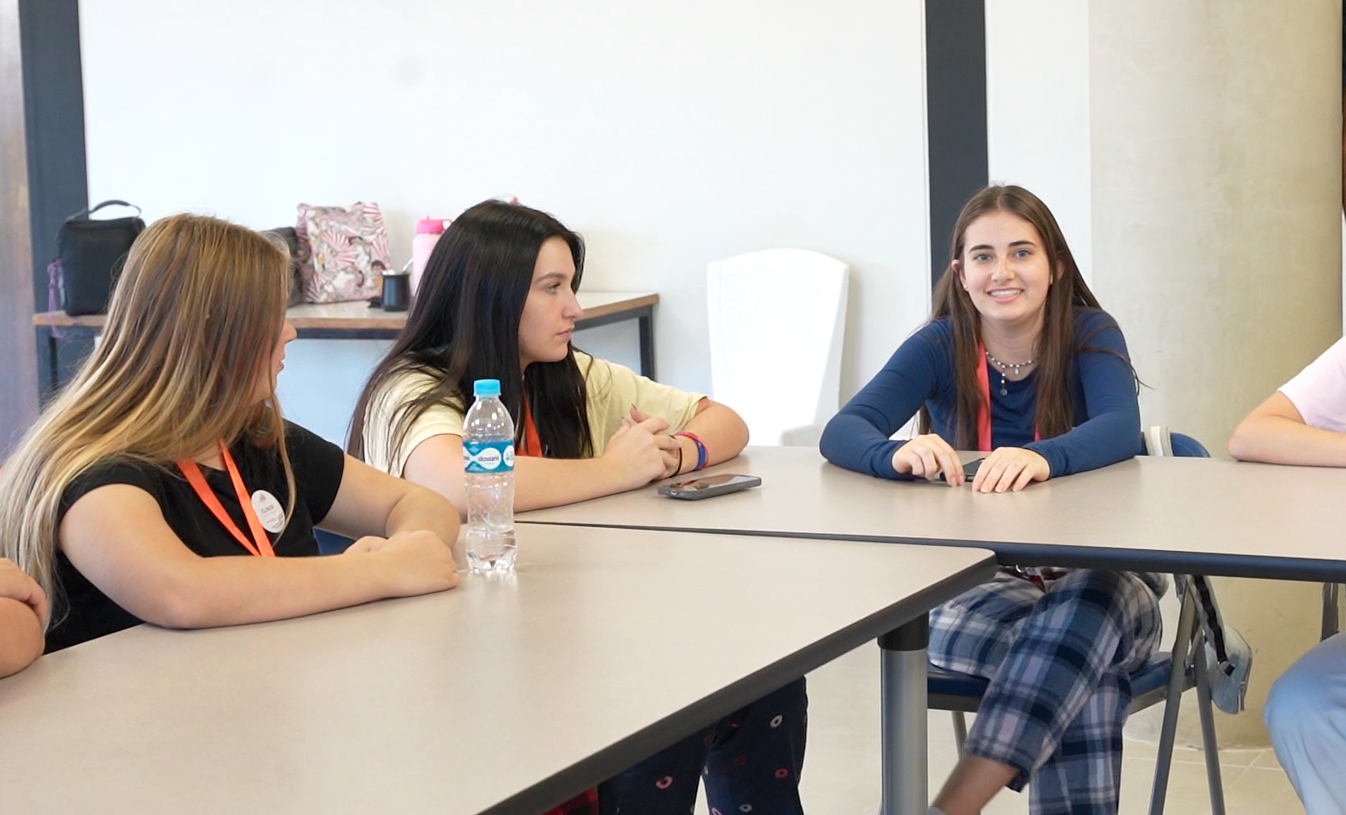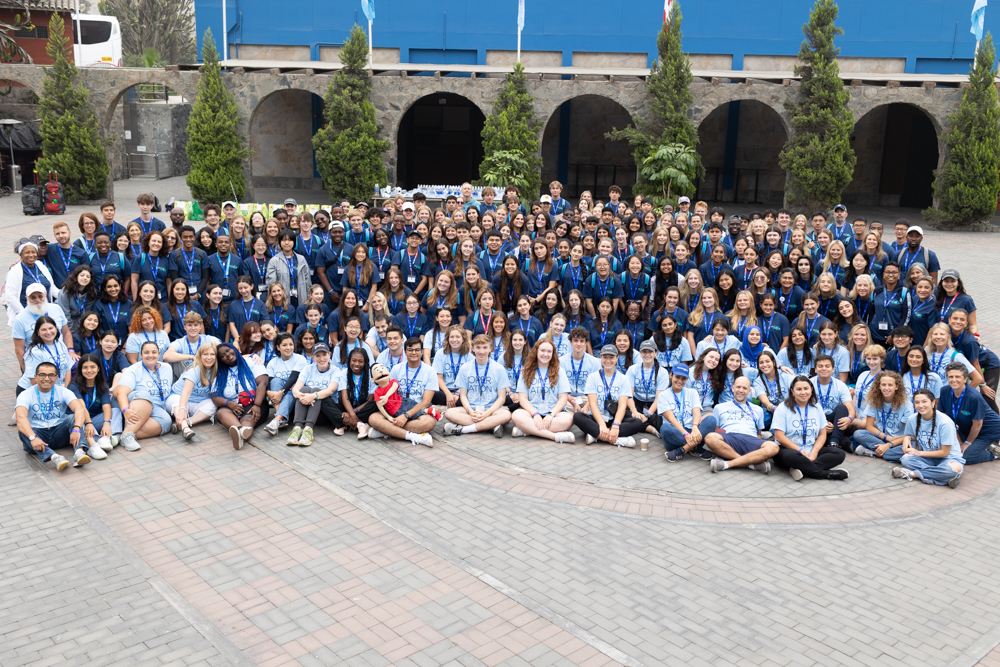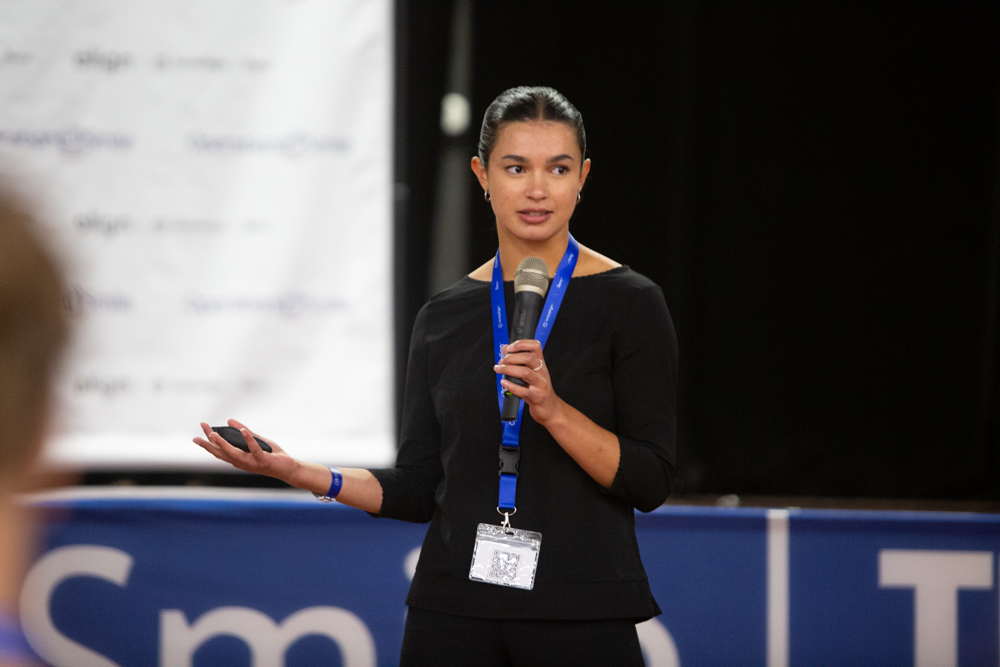Reagan’s New Perspective
Story by Dena Salehipour
Photo by Juanjo Marin
After attending a surgical program as a student volunteer in Asuncion, Paraguay, Reagan looks at balloons differently.
“I think I’ve realized that it’s not always about how much you can do, it’s about what you’re doing,” said Reagan, who’s from Norfolk, Virginia. “Even the smallest things help, like actually taking the time to play with children with something as small as a balloon … Playing with them with this one balloon just gives (parents) a break and lets them see that other people care about their child. And it seems like nothing to us. But it means the world to them that someone’s looking at their child like any other child because they were made fun of for having a condition that they couldn’t control.”
We caught up with Reagan toward the end of the program and learned more about the patients she met, the role she played, and her plans for Operation Smile in the future.
OS: So you’ve been here for more than a week now. How is it going so far?
RH: It’s been amazing. I never expected to be able to do anything like this. I never thought I’d be able to go to South America, so that was pretty cool. It’s been amazing to see a whole other culture.
OS: How do you see the impact of a different culture? Especially with the Operation Smile idea coming here?
RH: I think since I’ve traveled a lot, I’ve been exposed to a lot of different cultures, but especially seeing cultures that are so friendly. That’s been amazing to see. Especially with Operation Smile, just seeing how everyone’s so helpful to each other and willing to help each other and do any little small thing to try to make a change.
OS: And with that in mind, what is the thing you’ll take back to your club?
RH: That there’s people all around the world who need help and have children who need help. Everything that we can do to try to raise money, or even just raise awareness for other people to know about it and realize that it exists, will make an amazing impact on the lives of the children. They are here, and we’ve just never thought about it because we’re so focused on our local issues rather than what’s always going on in the world around us.
OS: Thinking about that, you being from the U.S., and being in a country where you don’t have programs in your country, and coming here to Paraguay to have this experience — what do you take from this?
RH: Now that I understand where our efforts are actually going, it makes me even more ready to do more fundraisers and more events to raise awareness and get more people involved with it. I’m seeing what it’s actually doing rather than just knowing I’m donating.
OS: I remember my first program, how is it to see that for the first time — that change that we always talk about.
RH: Seeing a kid come out of surgery was magical because I’ve seen surgeries before, I’ve had surgeries before and seen the impact, but having a cleft lip or cleft palate is so impactful to your everyday life, like eating and drinking. At such a young age and already feeling such a great impact from it. Seeing the mothers, seeing the relief on their face — not fear from the surgery but relief and excitement from the surgery that they’re receiving. That’s just amazing because what you’re doing is good. Surgery is not a scary thing for them; every kid I talked to said they were excited for surgery. They weren’t nervous, whether it was their first or their fourth surgery. They were just excited that we could help them and that it was going to improve their life.
OS: How does it make you appreciate Operation Smile now that you have seen in first-person, that 45 minutes can change a life?
RH: I think it’s so cool that for 40 years they’ve been doing this. … I only got involved about two and a half years ago, and I’ve just gotten more involved since. I kind of jumped into it, rather than having heard about it for a while. I just found out more as I did more. Getting to do this just really brought it full circle and allowed me to see the final impact of where everything goes. What seems small to us, 45 minutes, that’s not a lot of time, but that changes their life, and it’s never going to be the same for them.
OS: That’s beautiful. What changes are you seeing in yourself after this week?
RH: I think I’ve realized that it’s not always about how much you can do, it’s about what you’re doing. Even the smallest things help, like actually taking the time to play with children with something as small as a balloon … but to some of the children here was a magical toy. Playing with them with this one balloon just gives (parents) a break and lets them see that other people care about their child. And it seems like nothing to us. But it means the world to them that someone’s looking at their child like any other child because they were made fun of for having a condition that they couldn’t control.
OS: Do you have a specific moment during the program that you realized this?
RH: Yes, I think for me it was the little boy on screening day that I got close with. He called me Tia the whole day, so that was super special because it was just him and his dad, and he wasn’t talking to a lot of other kids. … I played with him all day. I followed him around through the whole process, and I quite literally held his hand the entire day. He had one little toy car, which we just absolutely adored playing with. Just spending so much time with him just made me realize how privileged I am to be able to be here for him.



